The world of work is changing, and one area where this is evident is spatial design. In the “IBA on site” series, we regularly visit companies, take a look at their office facilities and talk with company representatives in positions of responsibility. What are the latest trends in office design? This “IBA On the subject” offers an initial summary.
Trend 1: Flexibility and activity-based working
Modern offices offer a variety of work areas that are adapted to different working styles and activities. Employees can choose the space that best matches their requirements, ranging from team environments to collaboration hubs and lounge areas. This flexibility supports not only individual productivity but also collaboration and creativity within a team. The Ravensburger company, a game manufacturer, has created this type of flexible world of work in its multi-space office, which covers 4,500 square meters. A range of areas such as project rooms, the Working Café, creativity areas and meeting points enable the company’s employees to choose the place of work that matches their task and working style. This generates a work environment that stimulates creativity and innovation. Further reading: https://iba.online/en/newsroom/topics/love-changing-the-game-interview-simone-peckhaus-ravensburger-spielegruppe/
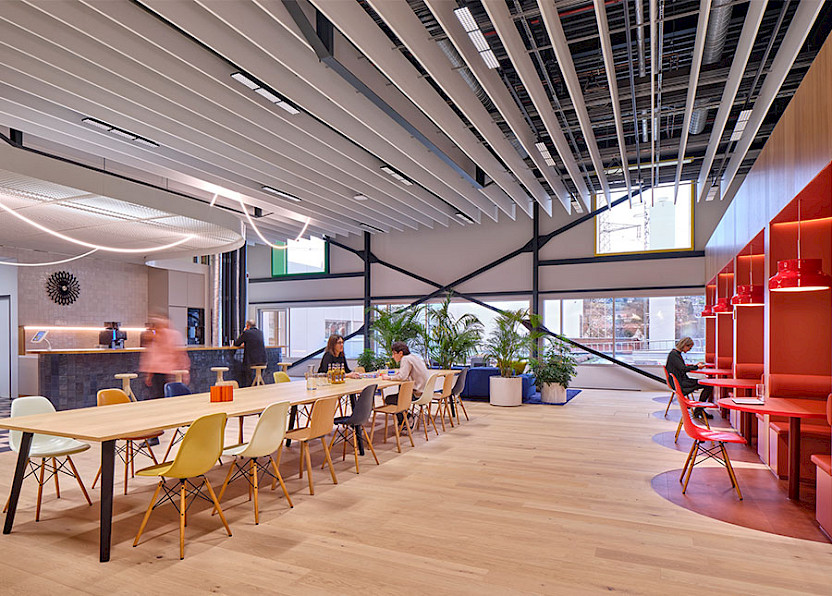
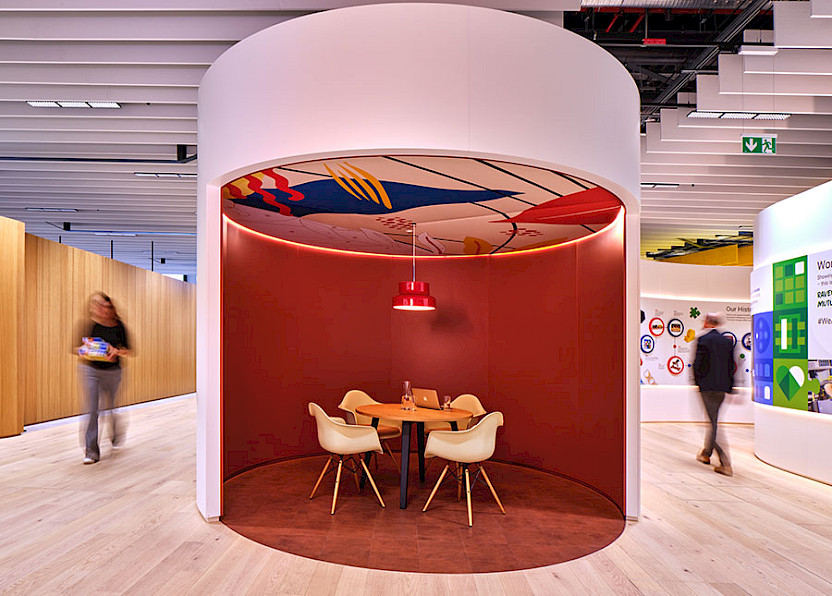
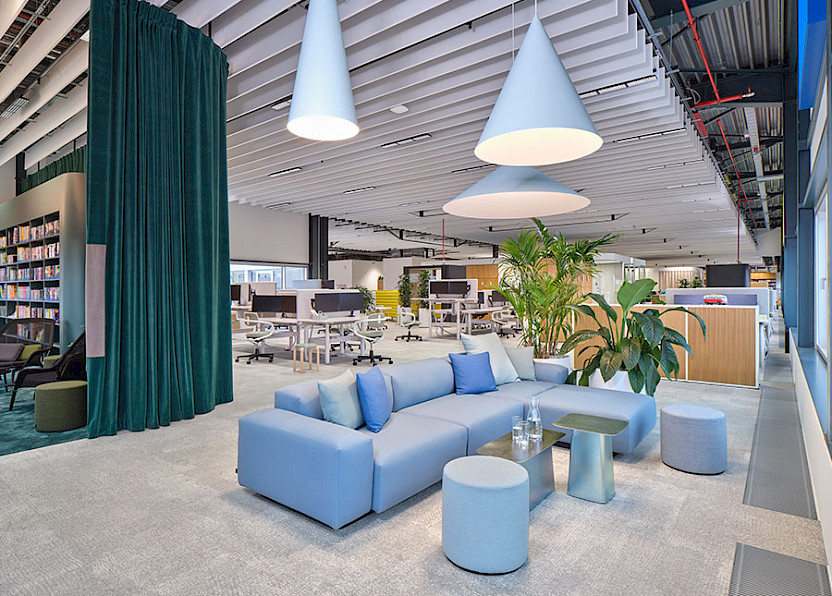
Trend 2: Integrated technology and hybrid work
The integration of technology is becoming increasingly important for offices. Sensors, apps and digital tools are embedded in the work environment to make work processes seamless and boost efficiency for teams whose members work in the office as well as remotely. The Optineo headquarters of KPMG in Munich are an example of successful integration aligned with state-of-the-art infrastructure. Here the employees can easily switch between physical and virtual modes of working and use conference rooms supported by technology. In addition, a special system for reserving workstations and conference rooms enables individuals to book a work environment that is tailored to their specific needs. Further reading: https://iba.online/en/newsroom/designing/iba-on-site-kpmg-muenchen-optineo-werksviertel/
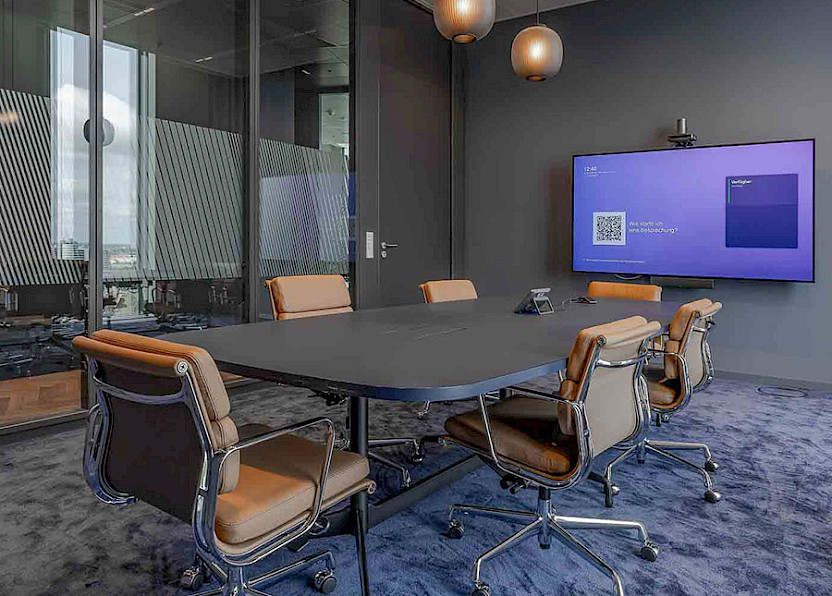
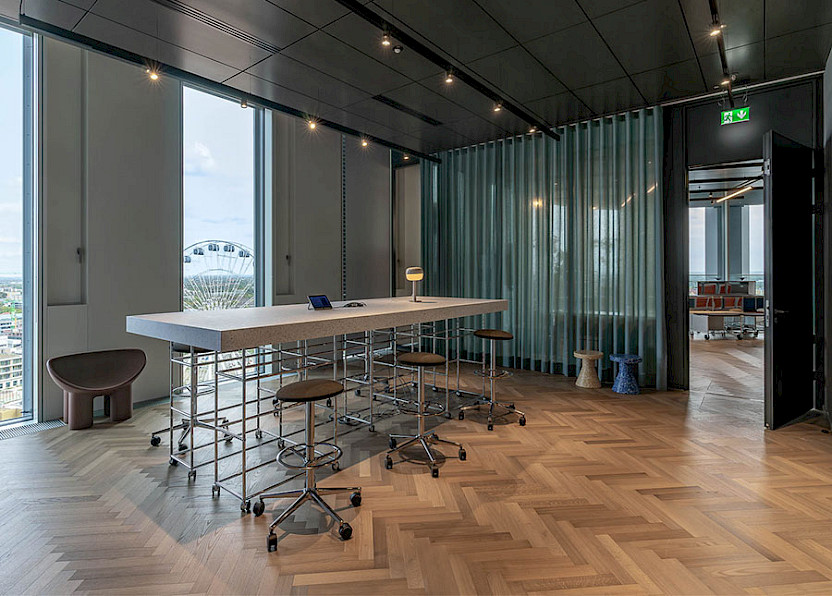
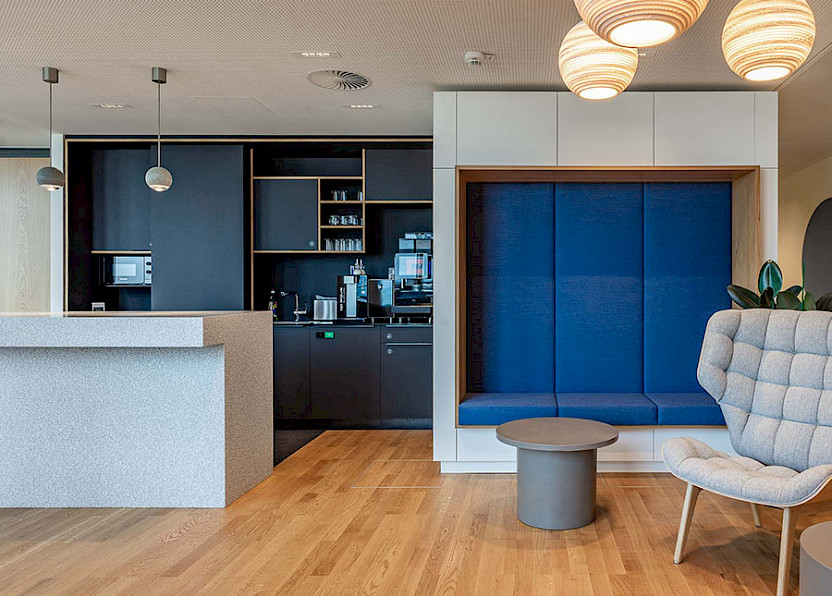
Trend 3: An inviting environment
Open architecture, natural materials, green areas and modern facilities such as cafés and fitness rooms create a pleasant working atmosphere. The new Promega building is a contemporary example of the new hospitality trend. Its architectural concept transcends traditional office structures and creates an inviting atmosphere that is entirely compatible with sustainability. Natural materials, many green areas and regional plants provide a connection with the natural world, while places such as the employee café, fitness rooms, quiet areas, external offices and terraces promote a sense of well-being and invite employees to take breaks that replenish their creativity. The architectural concept, which was planned in line with international sustainability standards, reflects the company’s sense of responsibility for the environment and society as well as its vision of creating a positive working atmosphere that is in tune with the natural world. Further reading: https://iba.online/en/newsroom/designing/innovative-sustainable-working-environments-the-german-headquarters-of-promega-corporation/
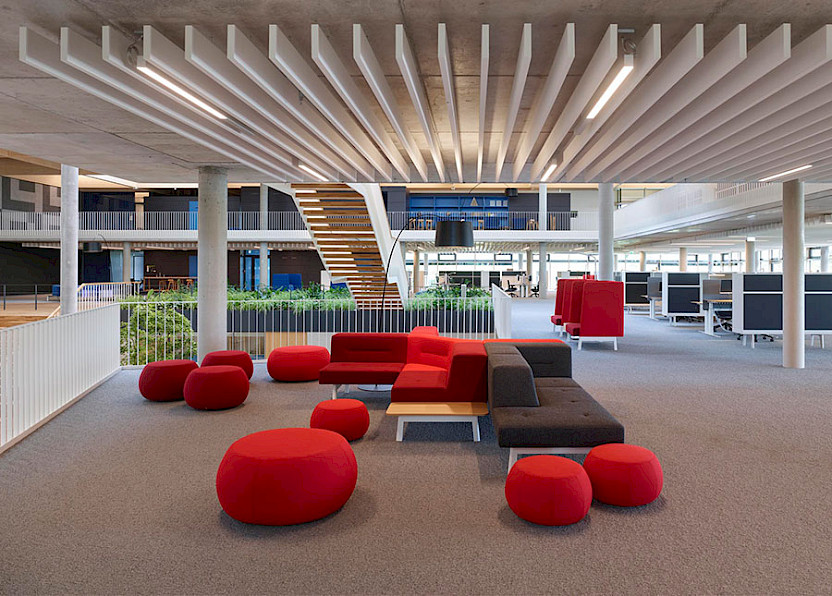
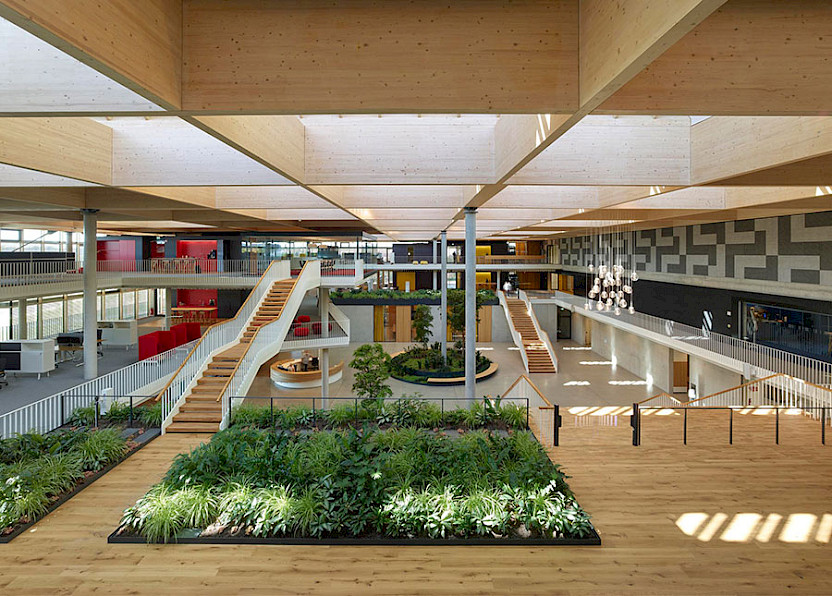
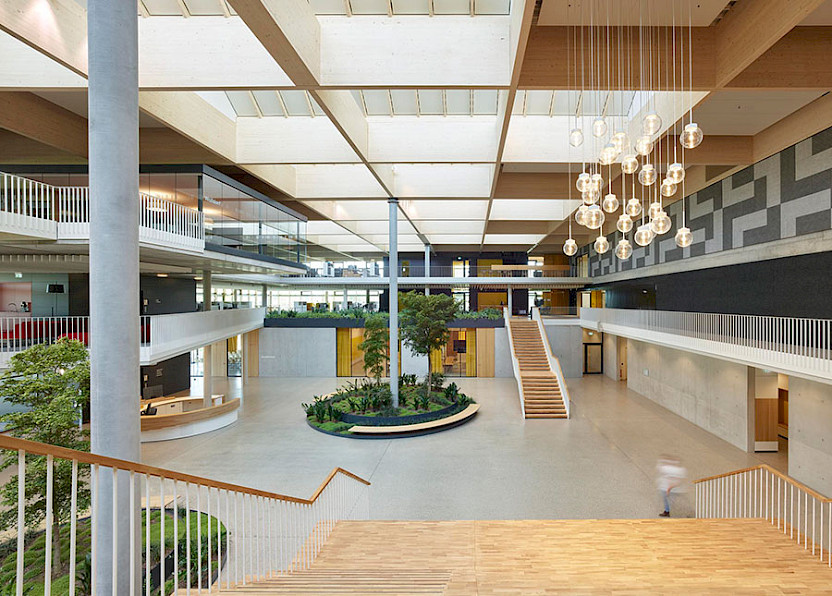
Trend 4: Dynamic and agile work environments
Dynamic and agile work environments are designed to react flexibly to the constantly changing needs and requirements of teams. The concept is based on the idea that work is no longer bound to fixed structures and rigid hierarchies. Instead, it should be adaptable, collaborative and multidisciplinary, as well as stimulating innovation. Environments of this kind offer spaces that enable fast decision-making and promote collaboration, creativity and innovation. The Beiersdorf campus is a contemporary example of how flexible work areas, the merging of diverse teams, and open communication structures are helping employees to fully exploit the advantages of interdisciplinary idea development and shared innovations while also having fun. The company is purposely utilising dynamic work, agile methods and collaborative work environments. Flexible work areas, open design concepts and the integration of team zones, conference rooms and creative project areas make it easier for departments and teams to work together. Technology and digital platforms also do their part to encourage collaboration and knowledge sharing between the employees. Further reading: https://iba.online/en/newsroom/designing/proudtob-inspiration-collaboration-and-well-being-on-the-beiersdorf-campus/
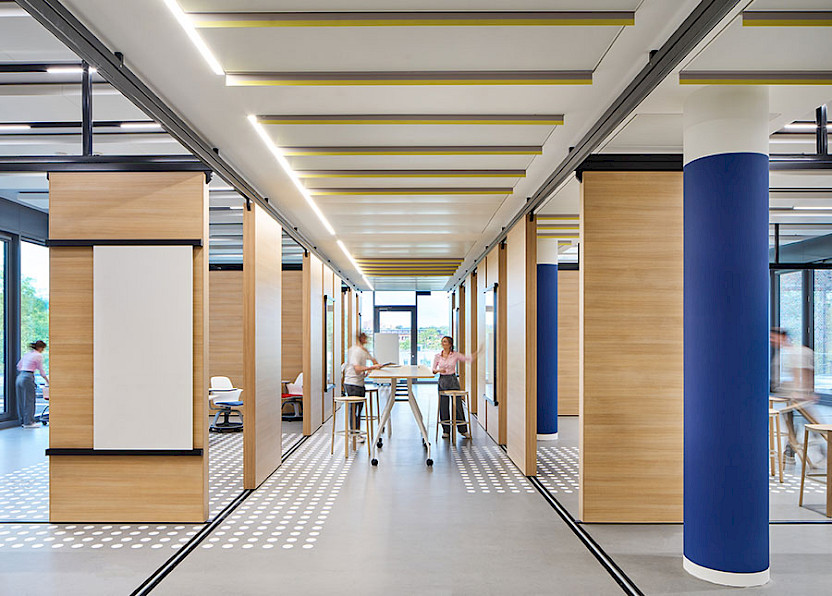
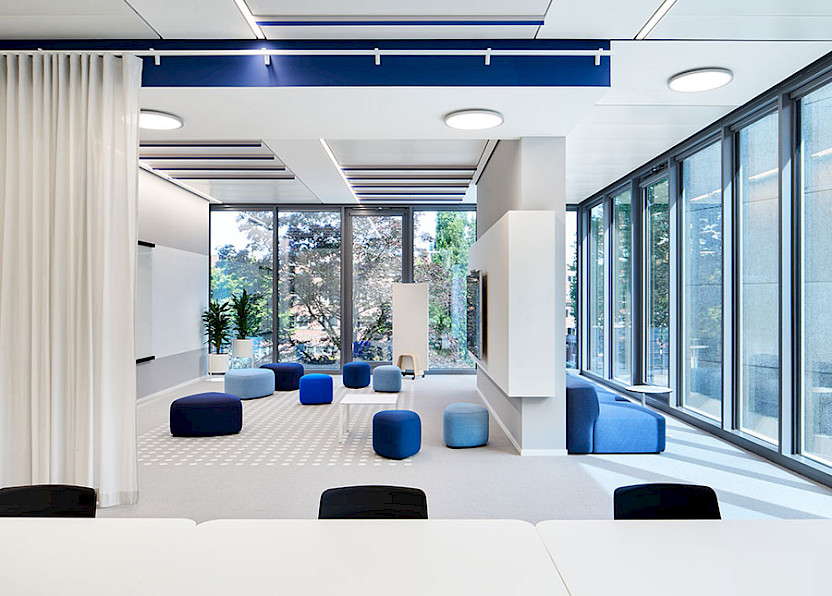
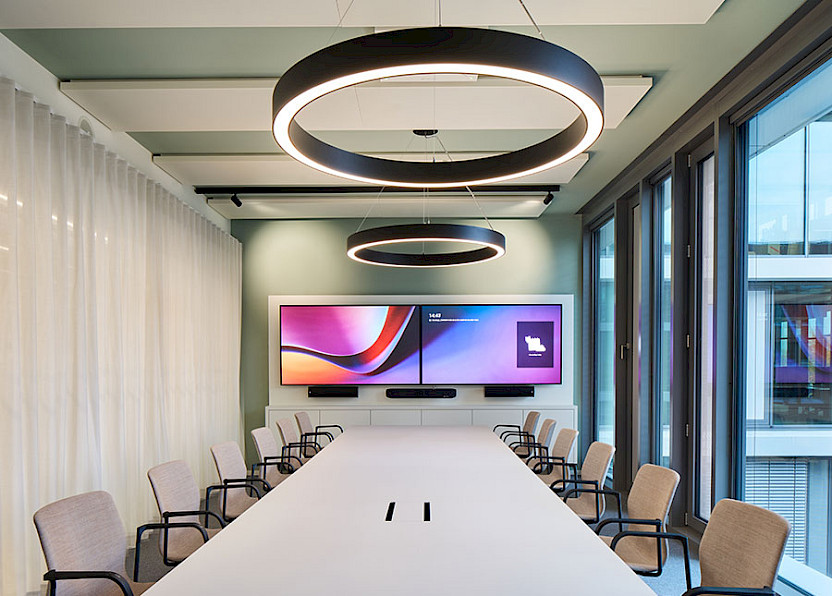
Trend 5: Participation and codetermination
Nowadays employees are being more actively included in the process of designing their work environment. One example of that is the University of Technology Nuremberg (UTN). The UTN focuses on the active inclusion of its employees in the creation of hybrid worlds of work that have been specially designed for the areas of teaching, research and administration. Through continuous feedback, surveys and co-creation it is generating workstations that match the individual needs of lecturers, students and administration staff. Thanks to this participation-based approach, it has successfully created a modern work environment that is not only attractive but also fulfils the requirements of the UTN as a dynamic educational facility. Further reading: https://iba.online/en/newsroom/designing/iba-on-site-university-of-technology-nuremberg/
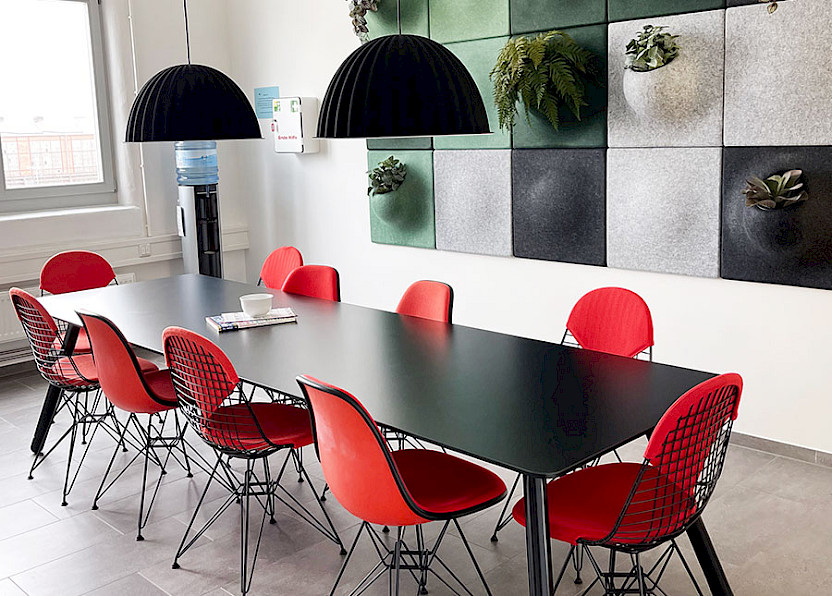
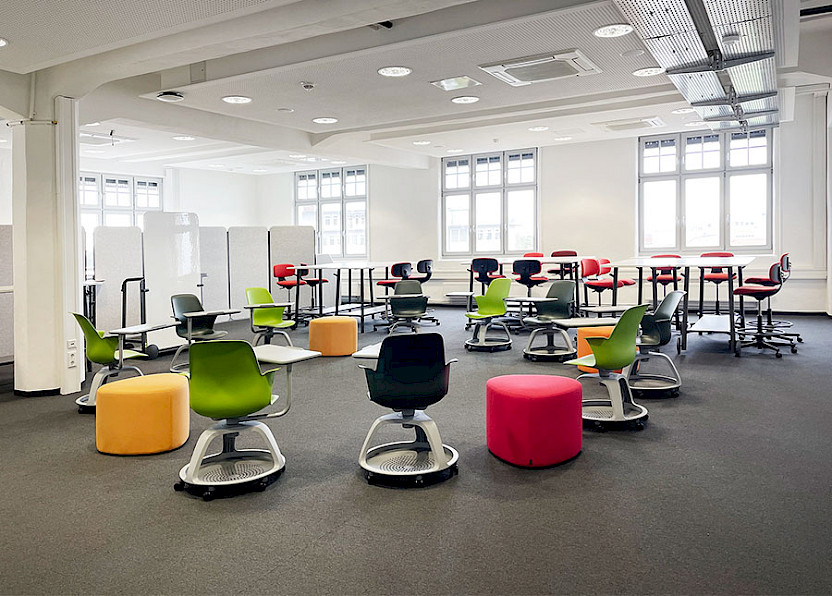
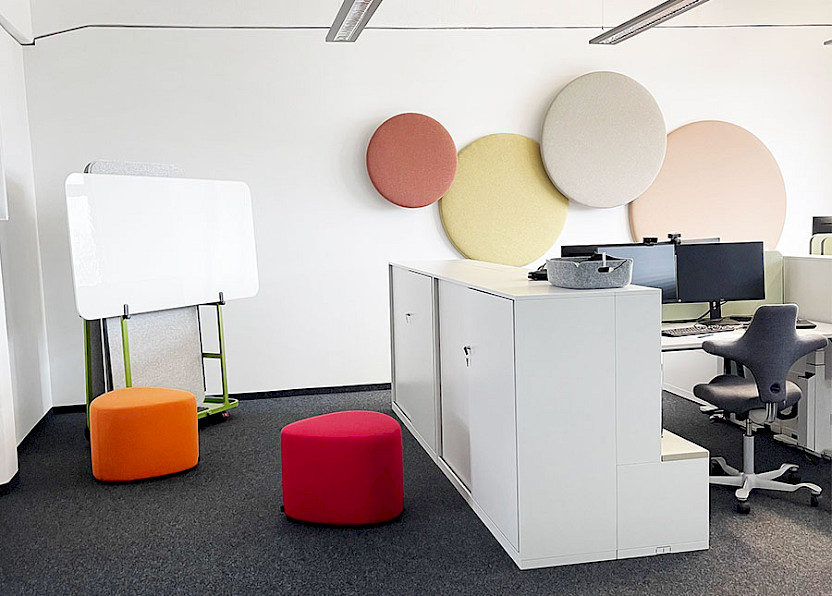
Trend 6: The office as a place for learning
At MLP the office is regarded not only as a workplace but also as a place for learning. The new work environments offer not only flexible work models but also many different kinds of learning opportunities. By combining various learning formats such as blended learning, in-person events and web-based training sessions, the company enables its employees to continuously enhance their qualifications. The spatial design of the offices plays an important role in creating opportunities for shared learning in a variety of settings. Special rooms and modules are designed for training sessions, workshops and learning groups that foster communication and collaboration. These learning areas in the office offer employees opportunities for professional and methodical development while also strengthening the corporate culture and collaboration between employees. Through its focus on digital skills and active learning, MLP supports its employees as they successfully master the challenges of the changing world of work. Further reading: https://iba.online/en/newsroom/designing/new-worlds-of-work-at-financial-services-provider-mlp-interview-angelika-zinkgraef/
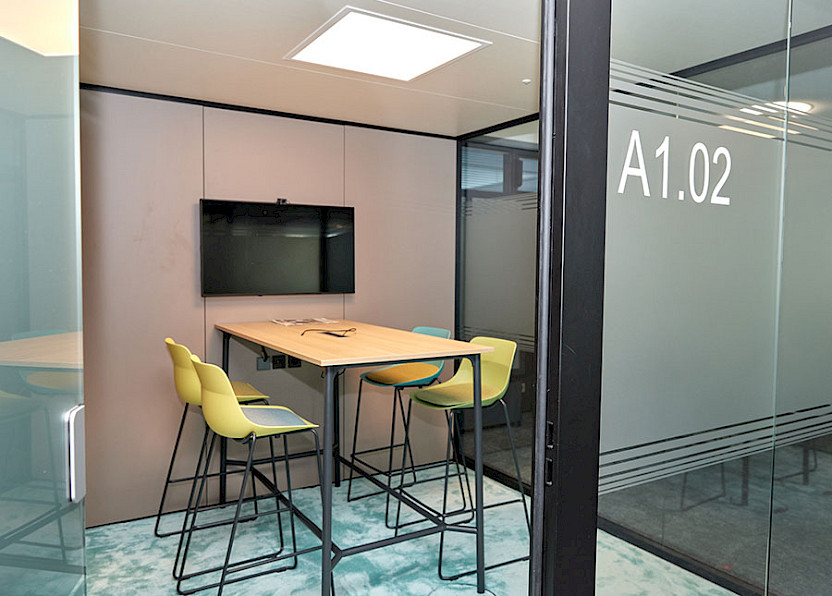
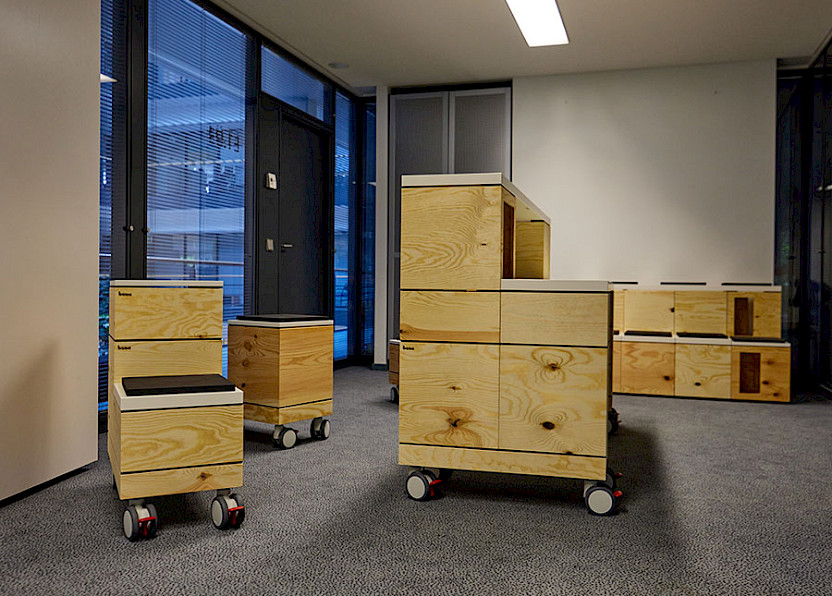
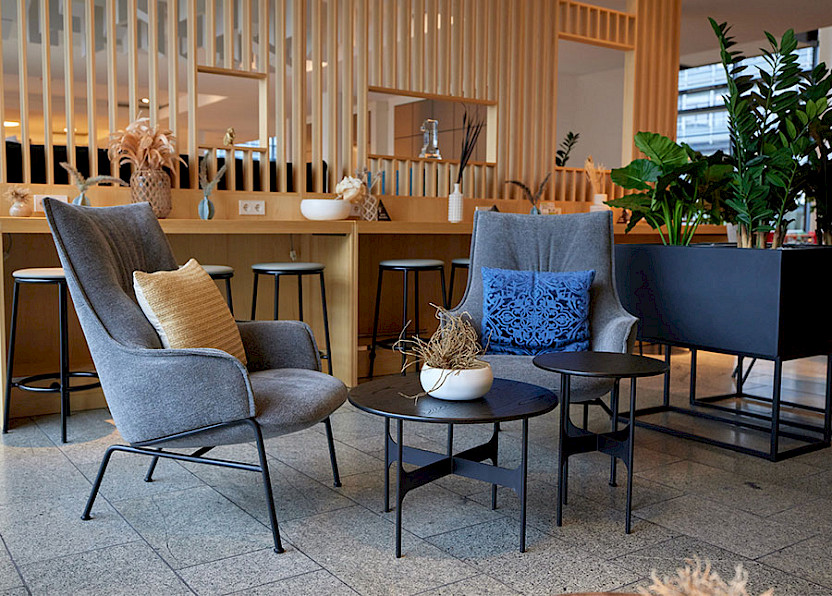



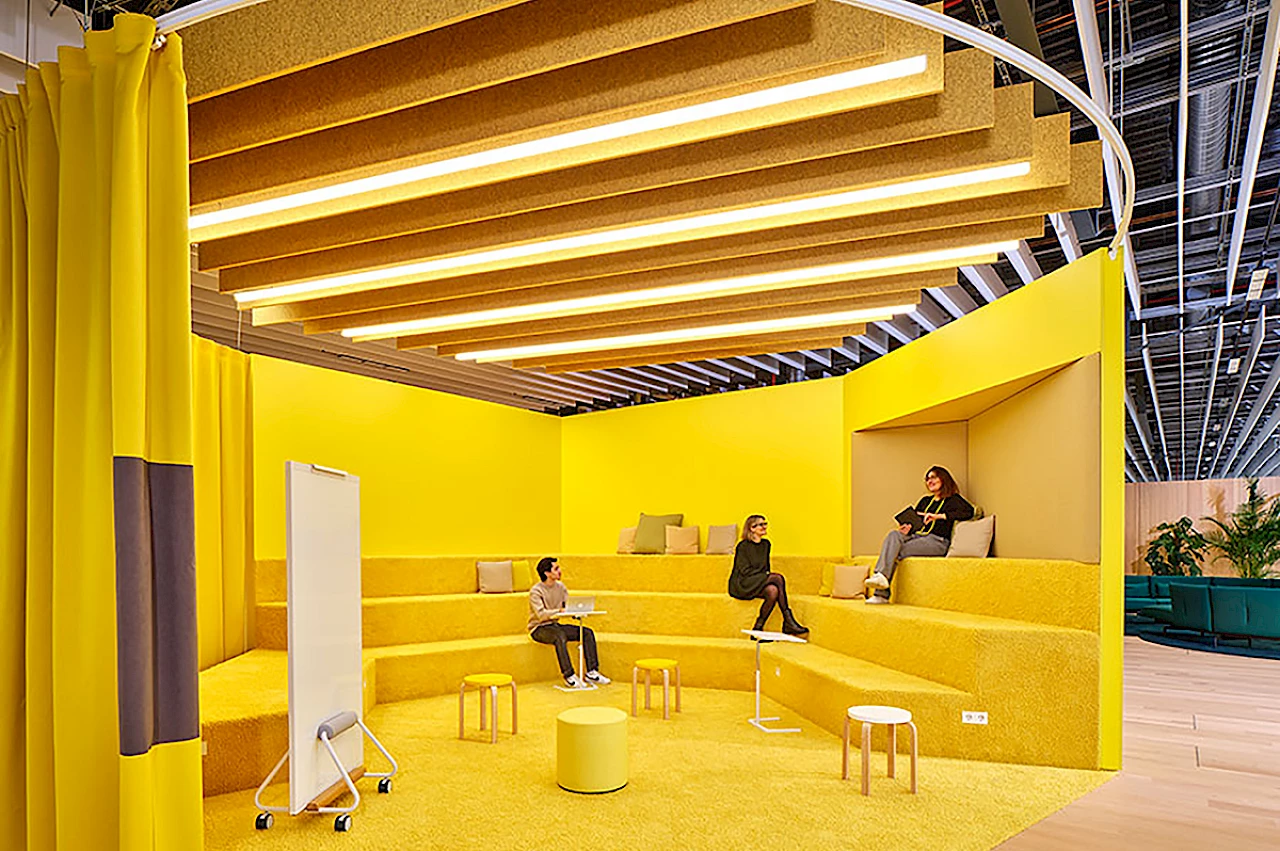
 Jasmin Najiyya
Jasmin Najiyya 